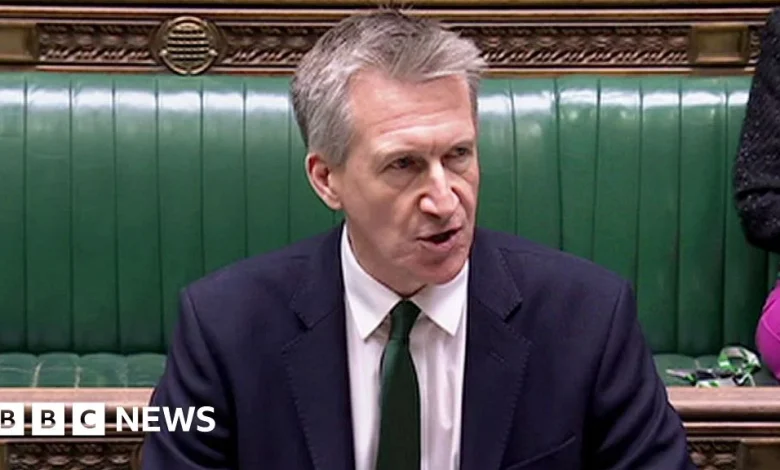UK will not tolerate Chinese spying, minister says after MI5 alert

Security minister Dan Jarvis has said the government will not tolerate “covert and calculated” attempts to interfere with the UK’s sovereign affairs, after MI5 warned MPs of the risk from Chinese spies.
An alert issued to MPs, peers and parliamentary staff by security services identified two LinkedIn profiles, which it says are used on behalf of the Chinese Ministry of State Security (MSS).
It says they act as “civilian recruitment headhunters”, targeting individuals working in British politics to solicit “insider insights”.
Jarvis announced a package of measures in the House of Commons to tackle espionage threats to the UK.
These included £170m to upgrade encrypted technology for government business, as well as new protections against Chinese cybercrime and attempts to influence UK university research.
Jarvis told MPs: “Our intelligence agencies have warned that China is attempting to recruit and cultivate individuals with access to sensitive information about Parliament and the UK government.”
He added: “This activity involves a covert and calculated attempt by a foreign power to interfere with our sovereign affairs in favour of its own interests, and this government will not tolerate it.”
Commons Speaker Sir Lindsay Hoyle and his counterpart in the House of Lords, Lord McFall, circulated the MI5 warning to MPs and peers on Tuesday.
Writing to MPs, Sir Lindsay said Chinese state actors were “relentless” in trying to “interfere with our processes and influence activity at Parliament”.
He said the Chinese MSS was “actively reaching out to individuals in our community”, and that they wanted to “collect information and lay the groundwork for long-term relationships, using professional networking sites, recruitment agents and consultants acting on their behalf”.
Other elements of espionage described in the MI5 alert include all-expenses paid trips to China, and payment for information through cash or cryptocurrency.
Targets are said to include “Parliament staff, economists, think tank employees, geo-political consultants and those working alongside [the government] including MPs and members of the House of Lords”.
Jarvis highlighted a pattern of behaviour around Chinese spying attempts, which he said he would take “all necessary measures” to protect against, including updating and strengthening national security powers.
He said rules will be tightened to tackle covert funding of political parties, while the Electoral Commission will be given greater enforcement powers.
There will also be security briefings for all parties and candidates standing in the elections next May for the Scottish Parliament, Welsh Senedd, and councils across England.
Stressing that China is still the UK’s third biggest trading partner, Jarvis said the UK would nevertheless use sanctions “as necessary”.
Conservative shadow Home Office minister Alicia Kearns urged the government to increase transparency of China’s activities in the UK by putting the country on the enhanced tier of the Foreign Influence Registration Scheme (FIRS).
Currently only Iran and Russia are in the enhanced tier, meaning someone cannot carry out work for the countries until they have registered their activity with the government.
Kearns also said the government should cancel planned visits to China and reject an application to build a Chinese embassy at a sensitive location in central London.
Jarvis said the government was “looking closely at whether it is necessary to make further additions onto the enhanced tier” for FIRS but added that “no decision has yet been made”.
On the embassy, he said the decision would be made by the housing secretary.
Former Conservative Party leader Sir Iain Duncan Smith said the alert showed China was taking an “aggressive position” that “blows a hole through all of that ridiculous nonsense” about whether or not China was a threat to UK national security.
“We have to be much, much more vigilant,” he told BBC News.
“Why is the government so unable to call China what it is, which is a persistent, continuing threat to Britain’s national security.
“That is clear to every single member of the public… but somehow the government seems to think it isn’t that clear.”





